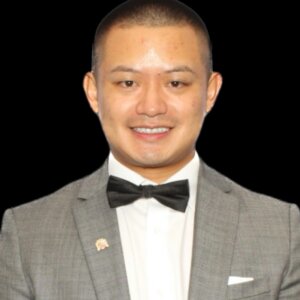Barring individuals from purchasing property based on national origin is discriminatory and unconstitutional. Yet, on May 8, 2023, Florida Governor Ron DeSantis signed and passed SB 264, prohibiting people of Chinese descent from purchasing homes and agricultural land within ten miles of a U.S. military base and “critical infrastructure” facilities. Buyers who violate SB 264 could face $5,000 fines and up to five years in prison, while sellers could face up to one year in prison and $1,000 in fines.
SB 264 aims to combat “Chinese influence” and strengthen the United States’ national security. However, Florida offers no proof or data to justify how this discriminatory law is narrowly tailored to its interests. Instead, SB 264 places much of Florida home ownership off-limits to people who are here lawfully. Although this bill mainly targets people of Chinese descent, it also bars immigrants from Cuba, Venezuela, Syria, Iran, Russia, and North Korea from purchasing homes.
Troublingly, Florida is not alone in legislating discriminatory land laws. Alabama, Montana, and Louisiana are in line to pass similar legislation later this year. These state officials believe laws like SB 264 are necessary to combat the influence of the Chinese Communist Party. However, they wrongly equate people of Chinese descent with the Chinese government and arbitrarily exclude a swath of individuals from home ownership.
History informs us of the harms and dangers of discriminatory property laws. The California Alien Land Act of 1913 was one of the Western states’ legislative efforts to restrict land and corporation ownership by persons of Japanese origin. In response to these restrictive provisions, Japanese-immigrant families placed land titles in the names of their minor children born in the United States and arranged for Asian-born fathers to serve as guardians of their children’s property. Adapting to the restrictions on corporation holdings, Japanese-born persons limited their stock ownership to 49%, and the balance of the remaining stock was held by their American-born children or another American citizen. To address these adjustments by Japanese settlers, in 1920, California enacted a second law prohibiting persons ineligible for citizenship from serving as guardians of minor children’s property. It also barred persons ineligible for citizenship from owning stock in a corporation with the authority to own farmland. Moreover, any property previously acquired by immigrants was escheated to the state. Those who managed to keep their property soon lost it during the Japanese internment camp and relocation program. A generation of Japanese-American wealth was wiped out by xenophobic policies—a strategy many southern states are now attempting to replicate for families of Chinese descent.
History has demonstrated that discriminatory property laws don’t keep Americans safe, but instead fan the flames of hatred and violence against Asians striving for the “American dream.” Discriminatory laws, i.e., legalization of “Asian-hate,” are likely to embolden and encourage individuals to act hostile against people that appear to be Asian. Discriminatory laws like SB 264, cloaked under national security banners, “ha[ve] no place in law under the Constitution.” Korematsu v. United States, 323 U.S. 214, 248 (Jackson, J., dissenting).
Everyone—regardless of ethnicity or national origin—has a right to choose where they live or work. Similarly, the government cannot dictate who property owners sell their property to; the state cannot force the hand of private citizens to violate the Fair Housing Act. If you or a person you know has been the victim of discrimination, we may be able to help. Contact Lauren DiMartino today to discuss your situation.
 This blog was authored by BGL summer associate Jason J. Zheng. At the time of publication, Jason is a third-year law student at CUNY School of Law, where he is a student attorney at CUNY’s Creating Law Enforcement Accountability & Responsibility (CLEAR) Clinic. He previously worked at the U.S Court of Appeals, Second Circuit for the Hon. Myrna Pérez, and at the Manhattan District Attorney’s Office, Rackets Bureau.
This blog was authored by BGL summer associate Jason J. Zheng. At the time of publication, Jason is a third-year law student at CUNY School of Law, where he is a student attorney at CUNY’s Creating Law Enforcement Accountability & Responsibility (CLEAR) Clinic. He previously worked at the U.S Court of Appeals, Second Circuit for the Hon. Myrna Pérez, and at the Manhattan District Attorney’s Office, Rackets Bureau.